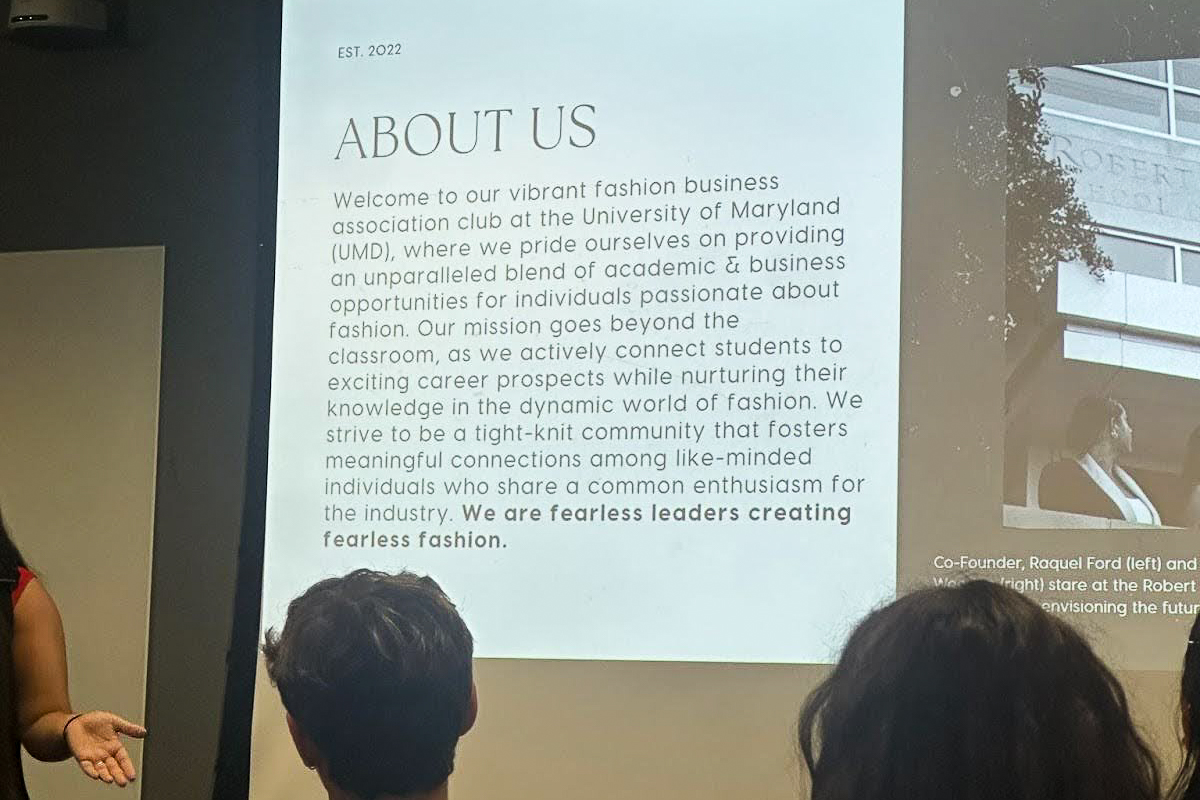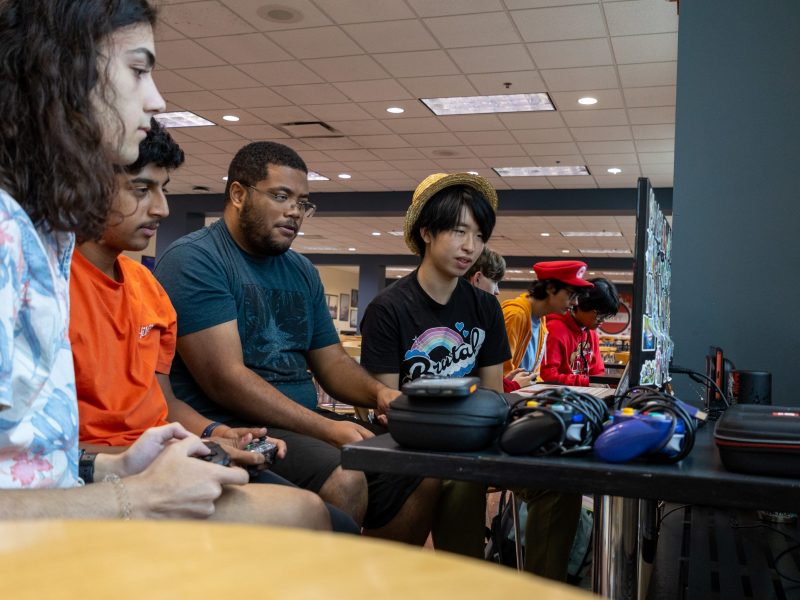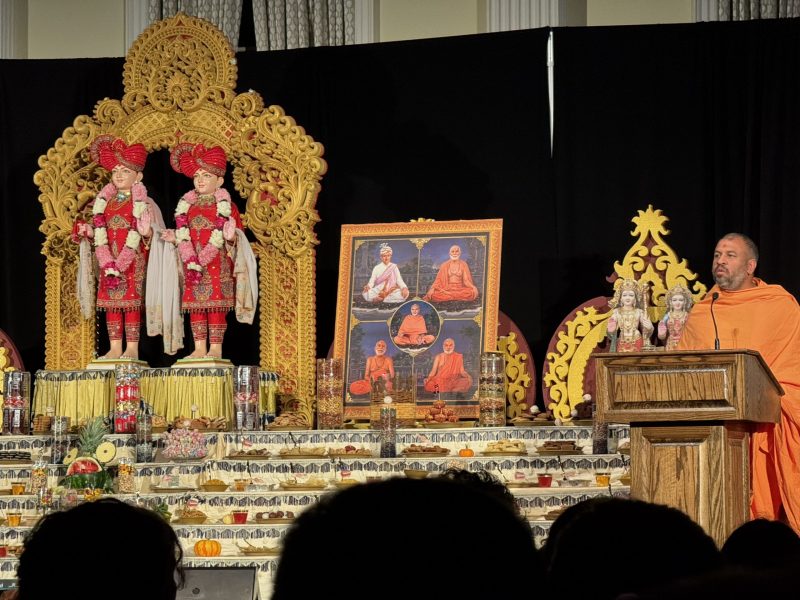An average meeting at the University of Maryland’s Fashion Business Association feels more like a style studio than an after-class club.
Janet Jackson and Taylor Swift streamed in the background as the club president, marketing major senior Raquel Ford, asked members to take one item from their bag that says something about them. Lip gloss, keychains and even a hot sauce bottle became points of conversation.
When Ford arrived at this university, she was excited about exploring the intersection between business and fashion. But she struggled finding a community on campus with similar interests.
With the help of an upperclassman, she took her idea to the campus runway and created the club — a space for students like her.
“There are so many businesses around fashion and beauty and a lot of students want to go into that,” Ford said. “We wanted to make a community of students so they’d be able to gain new opportunities and learn about their future career goals.”
The duo pursued their goal of fostering a community of fashion enthusiasts. After finding an advisor, building an executive board and recruiting members, they grew the association into a club that focuses on the intersection of fashion and business.
“We like to connect students to exciting career prospects, but we also make sure that we nurture their knowledge in a dynamic world of fashion,” Ford said.
[Dress to Recess: How Labubus, animal prints could indicate economic downturn]
Although the club started off as a small project when Ford co-founded it in 2022, it has grown in recent years due to the executive board’s desire to bring together students who love fashion.
At first, the club struggled to grow its membership. But through collaborations with other on-campus organizations that explore the professional side of fashion — such as MasTERPiece, the American Marketing Association and the International Business Student Organization — it was able to grow.
The club isn’t just limited to marketing and business, though. It aims to understand the fashion industry and its broader impact.
With the ever-increasing fast-fashion trends, members addressed sustainability by hosting events like a clothing swap last semester. They also collaborated with Depop, an e-commerce company, to share tips on selling secondhand.
Mashea Sowers, a junior economics and public health major, took the information she learned to create her own Depop shop, where she now resells clothes. Sowers feels the association provided her with lessons on how the fashion world operates and an environment that fuels creativity. It also welcomed her to a tight-knit community where she feels comfortable enough to receive fashion advice and inspiration from the people in the association.
“I’ve met new people who have recommended places to shop,” Sowers said. “So I definitely have improved my own style.”
[NPR’s Peter Sagal talks future of the humanities at The Clarice]
Brooke Glessner, a senior psychology major, said joining the association allowed her to expand her love for fashion.
She added being in the club has influenced her own fashion choices, helping her become more comfortable with what she wears and making her proud of the welcoming community she helped to build.
Ford said events with the club, such as working with name brands and speaking with professionals, increased her ability to recognize clothing trends. She believes that fall fashion is a big time of the year for different companies because of back-to-school looks, noting a boho and nomadic feel to this year’s fall fashion.
Similarly, Glessner finds herself more fashion-observant, eyeing what students are wearing while walking to class and excited to discuss them at the group’s biweekly meetings.
The club hopes this year to build on those lessons with speakers from companies that support marginalized communities, while continuing to spark creativity with activities such as last year’s Valentine’s Day-themed charm bracelet workshop.
The club also plans to partner with the university’s business school’s new career boutique.
Among the top goals for the club, Ford said, is increasing the its recognizability on campus and keeping its member retention high throughout the year.
Ford added she hopes association members will continue to develop their taste and confidence in their fashion and that the organization supports their growth.
“[It’s important] making sure that they stay true to who they are as an artist, but also professionally and how they can stand out when they’re working,” Ford said.



